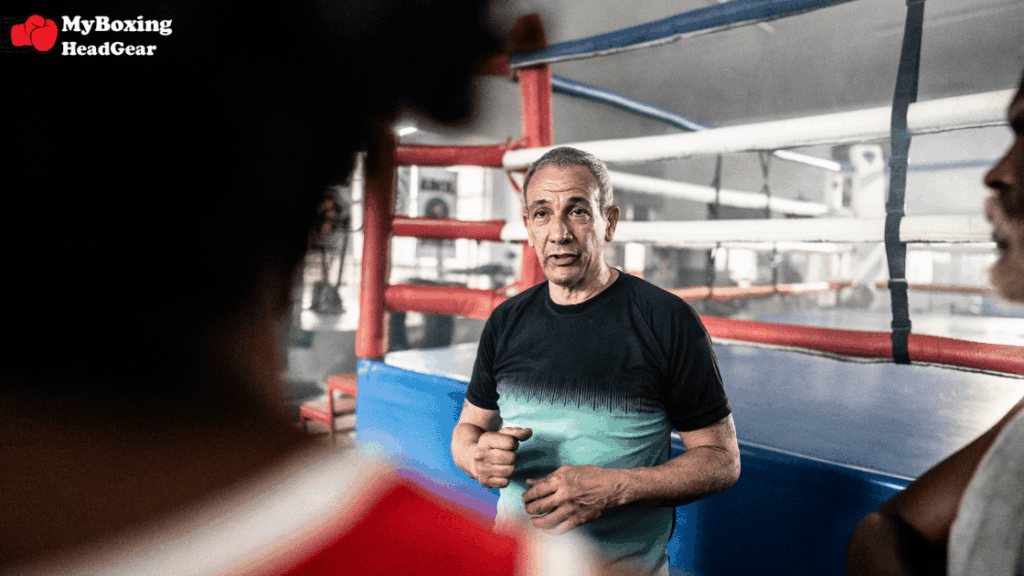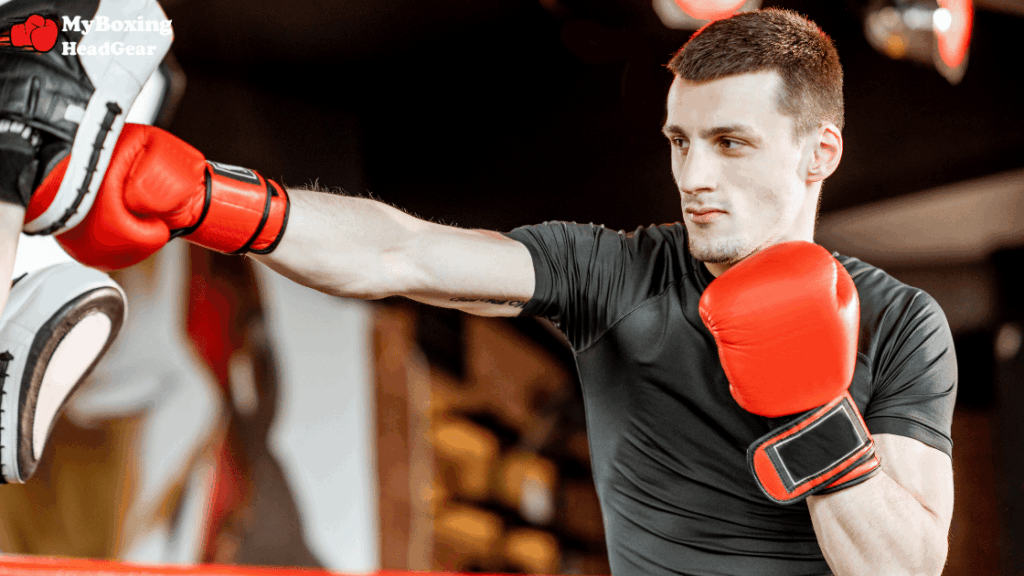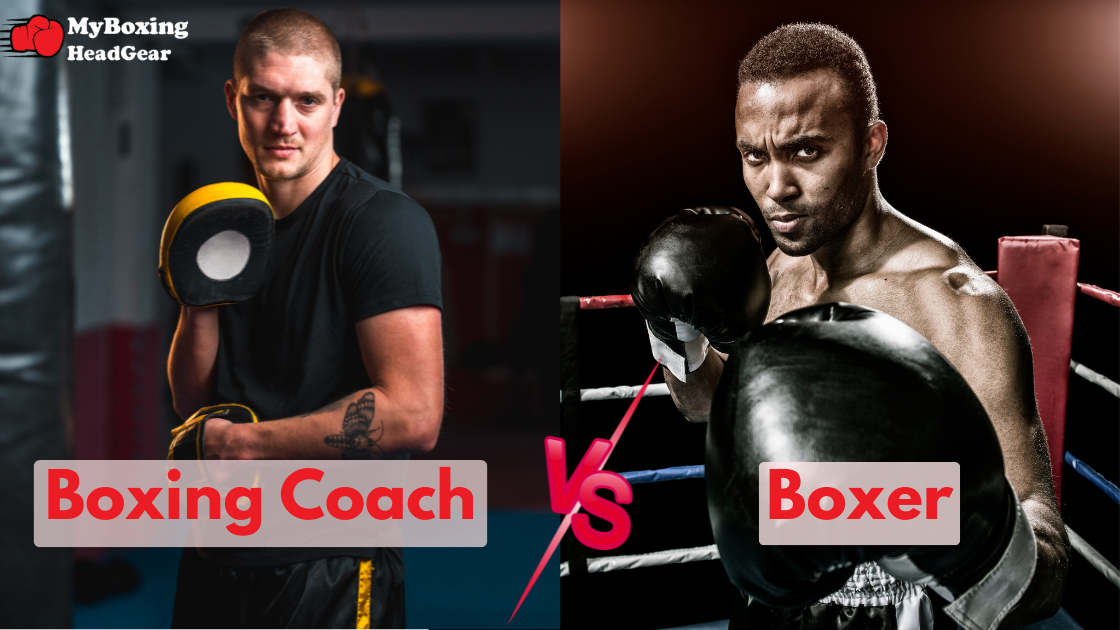A classic combat sport matchup between a veteran boxing coach and an active boxer. There lies an old question: Why? Do technical knowledge and ring wisdom outweigh youth, speed, and physical conditioning in a one-on-one fight?
A scenario like this – an experienced coach taking on their fighter – sounds pretty remote. Still, it begs an interesting examination of how the various elements of fighting ability interact. The details of this contest reveal who should really fight it out.
The Boxing Coach’s Advantages

Decades of Experience
A boxing coach is often a former fighter with decades of practical experience. They have seen hundreds, if not thousands, of rounds unfold in the gym and in competition. Their understanding of movement, timing, and rhythm is second nature. Years of observing fighters make them keenly aware of what works and what doesn’t inside the ring.
Superior Ring IQ
One of the strongest weapons a boxing coach brings to the table is their tactical intelligence. Known as “ring IQ,” this involves positioning, distance management, shot selection, and knowing how to win rounds without wasting energy.
A coach understands how to conserve movement, control the pace, and exploit an opponent’s tendencies—often without throwing many punches.
Ability to Read Opponents
Coaches spend their careers studying patterns in fighters. It includes recognizing setups for hooks, spotting telegraphed jabs, and seeing feints for what they are.
In a live match, this ability translates into anticipation—knowing what the boxer is going to do before they do it. Against an undisciplined or overly aggressive opponent, a coach could use timing and placement to neutralize physical disadvantages.
Composure Under Pressure
Having participated in countless sparring sessions, many coaches know how to stay composed even when taking hard shots. Their calm demeanor often gives them an edge when facing fighters who may be emotionally reactive. In a high-stress situation, a coach’s ability to remain focused and unshaken could be the difference between surviving and folding.
The Boxer’s Advantages

Peak Physical Conditioning
Active boxers are in their physical prime. They train for speed, power, endurance, and agility on a daily basis. In a fight, this conditioning manifests in quicker footwork, faster combinations, and the stamina to maintain intensity over several rounds. Physical output is where boxers typically shine over their older, possibly less fit trainers.
Superior Reflexes
Reaction time tends to decline with age. A young boxer reacts faster to visual cues, dodges punches more instinctively, and is capable of responding in split seconds. In exchanges, this reflex edge could be crucial in slipping counters or landing clean shots before a coach can reset their position.
Fight Readiness
Boxers practice real fight situations. They compete and spar at full speed and face unpredictable pressure weekly. They are accurate in timing, pacing, and body responses. But unlike a coach who hasn’t taken a punch in years, a boxer stays mentally and physically dialed into the intensity of actual combat.
Aggression and Intensity
Many younger fighters are aggressive – they want to win. That intensity may become overwhelming in short bursts. Unchecked, it is a liability, but controlled aggression keeps the boxer on pace and forces the coach into defensive positions.
Key Match Variables
Age and Conditioning
Age is a double-edged sword. It gives wisdom but also means slower recovery, reduced explosiveness, and reduced overall capacity for physical strain. Fatigue after a few minutes of engagement could be a liability if the coach is much older and not actively training.
Weight and Size
In any fight, size matters. If the coach is naturally larger or heavier than the boxer, it may help offset differences in speed. A heavier coach could lean, clinch, or smother the boxer’s attacks and limit the effectiveness of youth and agility. On the other hand, if the boxer has a size advantage along with speed, the coach may be overwhelmed quickly.
Fight Setting
In a light sparring session with mutual respect, a coach may control the flow using timing and light counters. But in a full-contact, unrestricted match, the advantage likely swings toward the younger, conditioned fighter.
If the ruleset mimics an amateur fight—shorter rounds, headgear, controlled environment—the technical knowledge of the coach could make a difference. However, in a no-holds-barred gym war, the fighter’s superior engine may prove too much for the coach over time.
Realistic Scenarios
If a coach is facing a novice or low-level boxer, experience almost always wins. Controlling range, setting traps, and controlling pace may reveal ignorance in a beginner. In these cases, the coach may win comfortably even if their physical condition isn’t great.
Then there is the reverse: a coach versus a trained, competitive boxer in his prime. The coach may have early success with counters and movement, but eventually, the younger fighter will dominate with speed, volume, and stamina. The coach might struggle to keep up physically over several rounds.
Providing the coach is still in good shape, and the boxer lacks technical discipline, then the coach may profit from bad habits. Sometimes, fighters who over-rely on athleticism are exposed to good counters or footwork traps. But here, the age gap could be closed by the coach.
Real-World Examples
Trainers like Freddie Roach and Teddy Atlas are examples of coaches with immense boxing intelligence and legendary status in the sport. While their knowledge is vast, their physical ability to compete at a high level has naturally declined with age and health. They would not realistically match an elite-level boxer in their prime.
On the other hand, coaches who are former champions—like Floyd Mayweather Sr., Shane Mosley, or Roy Jones Jr.—often retained enough of their reflexes and skills to school average-level boxers for years after retiring. These cases blur the line between coach and competitor, especially when the coach recently stepped away from active fighting.
Frequently Asked Questions
Can a boxing coach still beat an active fighter?
In some cases, yes. If the coach is in good shape and the fighter lacks technical skill or discipline, the coach can outsmart and outmaneuver them. However, against a high-level, conditioned boxer, the coach will usually be at a disadvantage due to age and speed.
Is a boxing coach still considered a fighter?
Many coaches are former fighters and retain significant fighting ability. While they may no longer compete, their instincts, technique, and experience often remain sharp enough to demonstrate and occasionally spar effectively.
Why do coaches sometimes spar with their boxers?
Sparring helps coaches understand how their fighters move, think, and react under pressure. It also allows them to correct mistakes in real time. However, such sessions are typically controlled and instructional rather than competitive.





